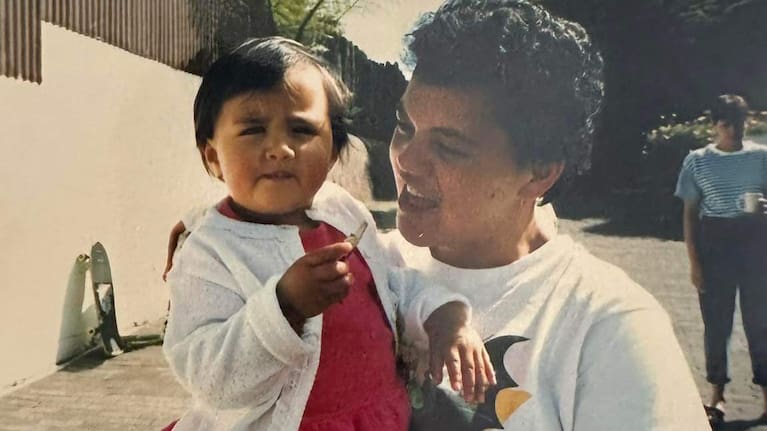Matariki is a time to remember and mourn loved ones who are no longer here. 1News reporter Te Aniwa Hurihanganui reflects on why this tradition feels particularly hard for her this year.
I knew the moment I answered my phone that my Aunty Ami had died.
On the other end was my dad, whose voice was barely a whisper. His sister had been suffering from an aggressive, terminal cancer for some time.
“She’s gone, bub.”
Dad was one of the first people to learn of her death that day.
He happened to be working in Auckland and had received a phone call from a relative to drive to Aunty Ami’s house as soon as he could.
That’s all he was told before the call ended.
He rushed to her home, where she lived with my Aunty Joy, and when he arrived there was an ambulance in the driveway. The front door was wide open. And he knew.
His darling sister had gone.
This was just before Matariki last year, a time that’s marked by the rising of the Matariki star cluster.
There’s a star in that cluster called Pōhutukawa, which is said to carry the dead of the year. When Matariki rises, this star reminds us to honour their memory.
I don’t need that reminder this year. Some days, I still hear Dad's words ringing in my head.
“She’s gone, bub.”
A love that never wavered
The public holiday was marked with hautapu ceremonies across the country. (Source: 1News)
In the days after my aunty’s death, I watched as Aunty Joy welcomed whānau and friends to the house, and took each of them to the spare room, where Aunty Ami lay.
Sometimes, Aunty Joy would sit next to the bed, stroke her hair, and softly adjust the blanket that covered her body.
She’d speak to Aunty Ami as though she was still here.
“You alright, little bud? Are you comfortable?”
Aunty Joy had only recently retired, so she could spend Aunty Ami’s final days by her side. She thought they’d have more time together. We all did.
In the living room of their home, my siblings and I sifted through the albums of Aunty Ami’s life. There were photos of her holding each of us as babies - giving us a smooch on the cheek, with her big hair and wide smile.

But they were mostly of her and Aunty Joy. There they were in their teens and twenties, arms wrapped around one another, healthy and youthful and happy.
There were pictures of the two of them in their thirties and forties, enjoying a good party, and a cold beer. Scattered before us were the decades of the life they shared.
When I moved to Auckland and lived with them for a short time in 2017, I saw how much fun they had. I had just moved out of Masterton, a town with no traffic lights. Adjusting to the city life was terrifying for me, and hilarious for them.
I once took the wrong bus home from work and freaked out. I called Aunty Ami in a panic, saying I needed to be picked up, but had no idea where I was. I had no access to the internet so I couldn’t Google Maps my way out of the situation.
She told me to describe my surroundings in detail, so I did. And after waiting at a bus stop in some random suburb for half an hour, Aunty Ami and Aunty Joy pulled up in their truck beside me, tooting the horn and laughing. “You idiot,” Aunty Ami said, in her loving, Aunty-Ami way.
I thought about that day during my wedding earlier this year. I wished Aunty Ami had been there. She would have enjoyed watching me walk down the aisle, and the beers. Although she and Aunty Joy never married, I always wanted what they had. A love that never wavered.
Later that evening, my partner and I looked through some of the cards our guests had written to us. There was one in particular I’ll never forget.
“Look after each other for life,” it said. It was signed, “Aunty Ami and Aunty Joy”.




















SHARE ME